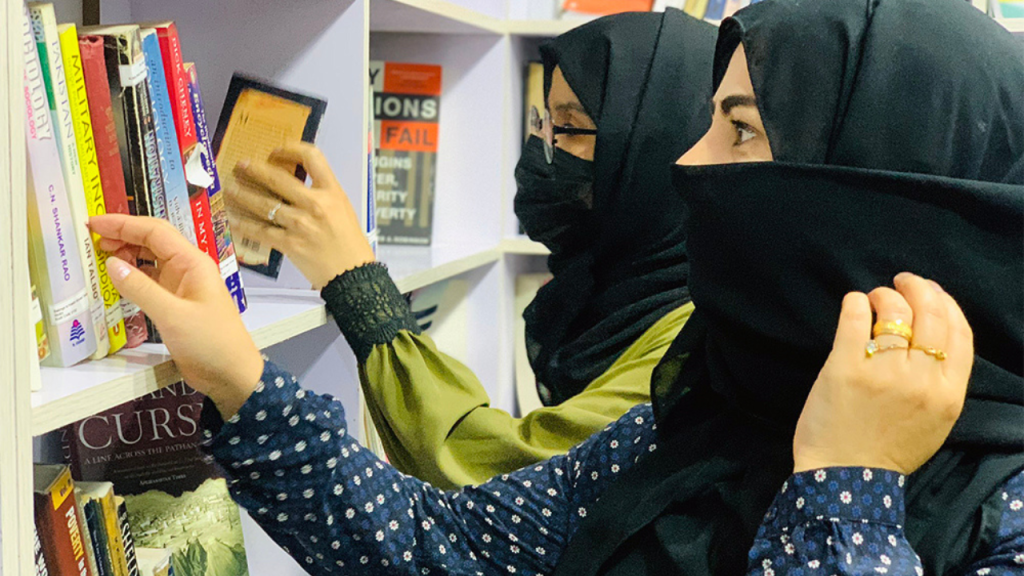The Taliban’s ongoing crackdown on education has escalated with the removal of books authored by women from university curricula across Afghanistan.
This move marks a significant erosion of freedoms, particularly since the Taliban regained control of the country four years ago. In recent months, the regime has also shut down fibre-optic internet services in at least 10 provinces, citing the need to curb access to “immoral content.” This reflects the tightening control over both education and information in the country.
The impact has been particularly devastating for Afghan women and girls. Education beyond grade six remains banned for girls, and in late 2024, midwifery courses—the few remaining professional training options for women—were quietly discontinued. Now, even university-level subjects related to women are under direct scrutiny.
Of the 18 academic subjects banned by the Taliban, six are focused on women’s issues, including Gender and Development, The Role of Women in Communication, and Women’s Sociology, according to reports by the BBC.
In a review of 680 books, 140 authored by women were flagged for removal. These included scientific texts such as Safety in the Chemical Laboratory, which were deemed to violate Taliban ideology and their interpretation of Sharia law. Authorities have also prohibited the teaching of 18 academic subjects, declaring them incompatible with the group’s interpretation of Islamic principles.
Despite widespread international criticism, Taliban officials insist that their policies respect women’s rights “within the framework” of Afghan culture and Islamic law. A member of the Taliban’s curriculum review committee told BBC Afghan, “All books authored by women are not allowed to be taught.”
Zakia Adeli, a former deputy justice minister and one of the affected authors, expressed little surprise at the ban. “Given the Taliban’s track record over the past four years, changes to the curriculum were expected. Their misogynistic worldview means that if women cannot study, their ideas and writings must also be silenced,” she said.
The new guidelines, issued in late August, were communicated to universities in a letter from Ziaur Rahman Aryubi, deputy academic director at the Ministry of Higher Education. He confirmed that the decisions were made by a panel of religious scholars and academic experts.
In addition to banning books by women, the Taliban has also targeted Iranian content. Of the 680 titles reviewed, 310 were written by Iranian authors or published in Iran. The review panel claimed that this measure aimed to prevent the “infiltration of Iranian content” into Afghan academic discourse.
The removal of Iranian texts has posed a significant challenge for Afghan educational institutions, which have relied on these materials to bridge the gap between local standards and international academic norms. A professor from Kabul University warned that the elimination of such resources leaves a “substantial void” in the education system, compelling educators to produce their own textbooks under stringent Taliban restrictions. This raises concerns about whether these materials can meet global academic standards.


